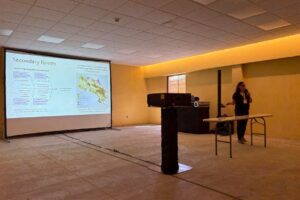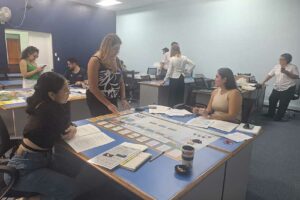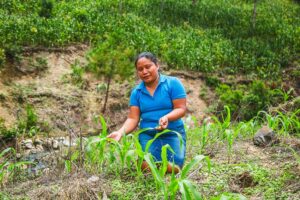CATIE and the Indio Hatuey Experimental Station seek to build capacity in families producing goats and pastured pigs
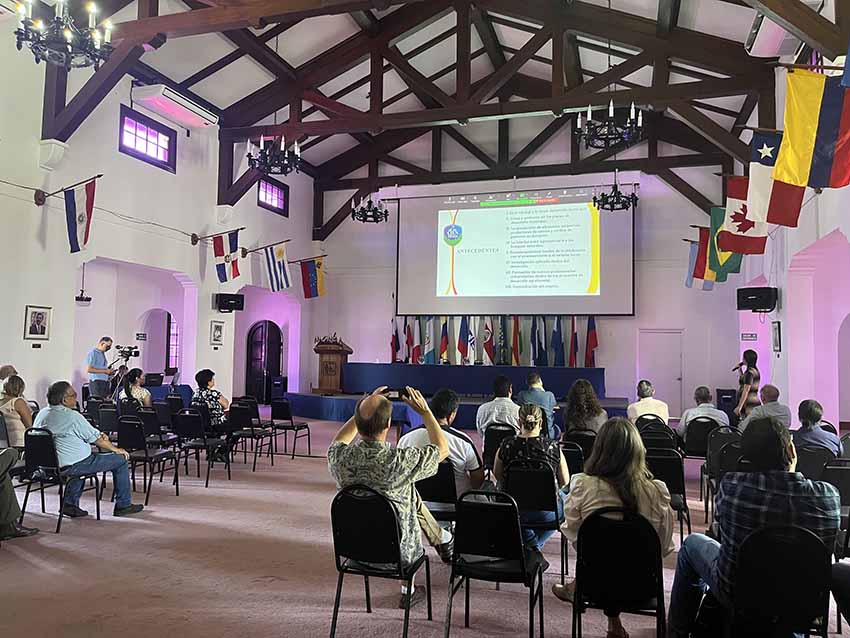
- This from sustainable agro-forestry and climate management, with funding from SIDA.
May 11, 2023. The CIENPINOS project: Municipal climate governance and sustainable agro-forestry production of food with low emissions and adapted to climate change, to be implemented in the provinces of Cienfuegos and Pinar del Río, in Cuba, with funding from the Swedish International Development Cooperation Agency (SIDA), was presented on May 11 at the headquarters of CATIE (Tropical Agricultural Research and Higher Education Center) in Costa Rica.
This project, led by CATIE and the Indio Hatuey Experimental Station, seeks to contribute to the creation of the necessary capacities for municipal climate management and the management of sustainable agro-forestry systems that are low in emissions, resilient to climate change and conserve biodiversity, in the municipal governments of Cumanayagua, Abreus, Viñales and La Palma. It involves families producing goats in Cumanayagua and grazing pigs in the pine-oak forests of Viñales.
The presentation of the project was attended by the Cuban ambassador to Costa Rica, Jorge Rodríguez; the Director General of CATIE, Muhammad Ibrahim; and the technical team of the CIENPINOS project, made up of Ismael Hernández, Tania Sánchez, Raúl Isidrón and Nayda Armengol.
"I know that in this project, together with the different research units of CATIE, we will contribute to address issues that are relevant to Cuba, such as food security, nutrition and adaptation to climate change. Undoubtedly, this project will generate a lot of knowledge in sustainable goat and pig management, to promote biodiversity conservation and resilience, but also articulating production chains that benefit young people and women," said Ibrahim during the presentation.
Sánchez, national director of the CIENPINOS project, explained that the project has four components: municipal climate governance, nature-based sustainable production solutions, capacity building and communication.
Among the main results, the project is expected to generate knowledge on the climate vulnerability of agricultural and forestry production and the balance of greenhouse gases resulting from the dynamics of land use change in the four municipalities.
The communication component was also presented, for which Isidrón showed the project's communication strategy, its graphic identity manual and several audiovisuals produced.
To conclude the presentation, a space was opened for questions and comments in which those present participated. Finally, Hernández summarized the main conclusions of the event and thanked Ambassador Rodríguez for his presence.
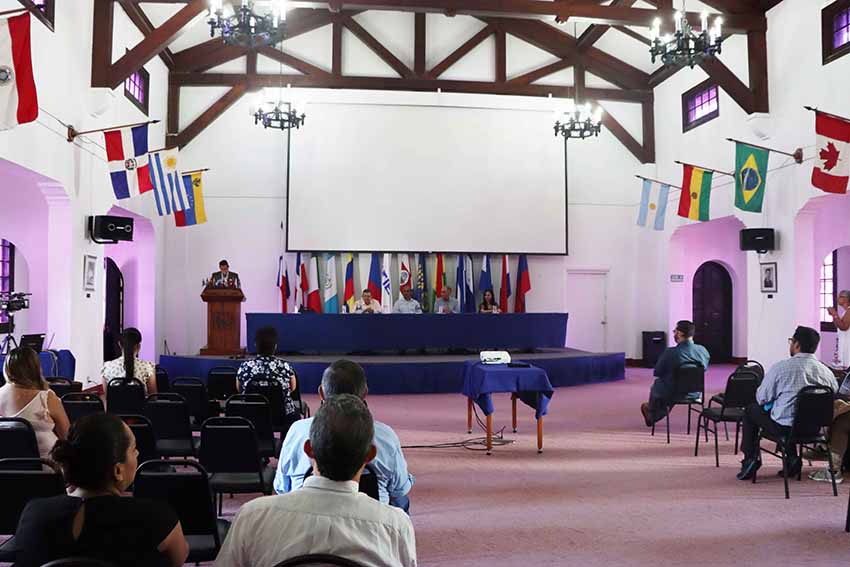
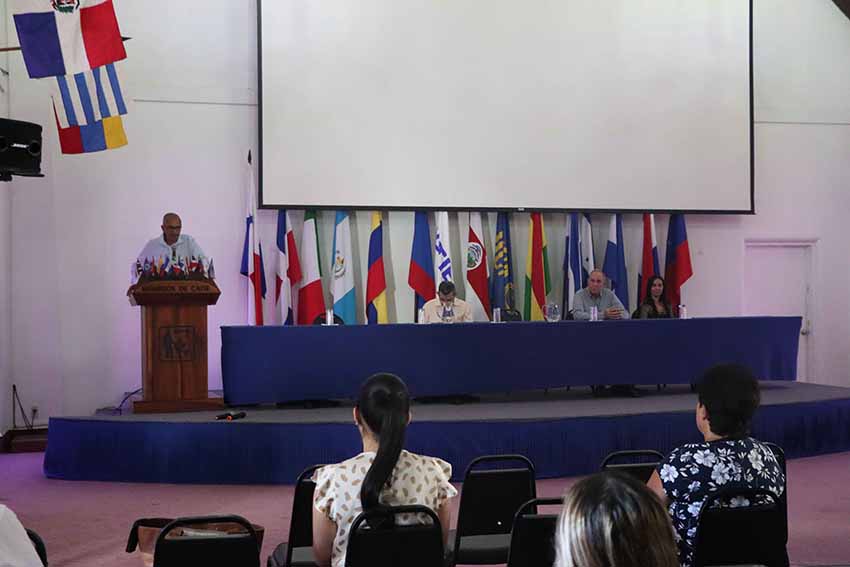
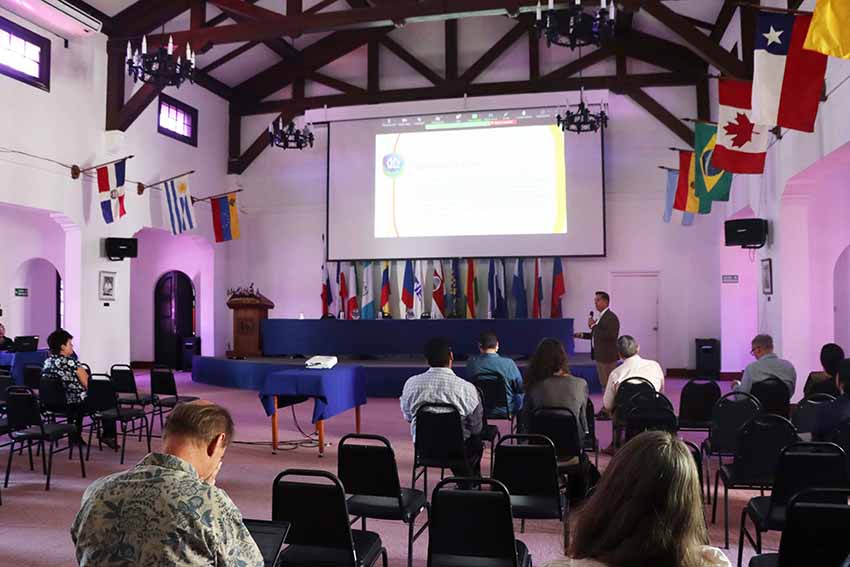
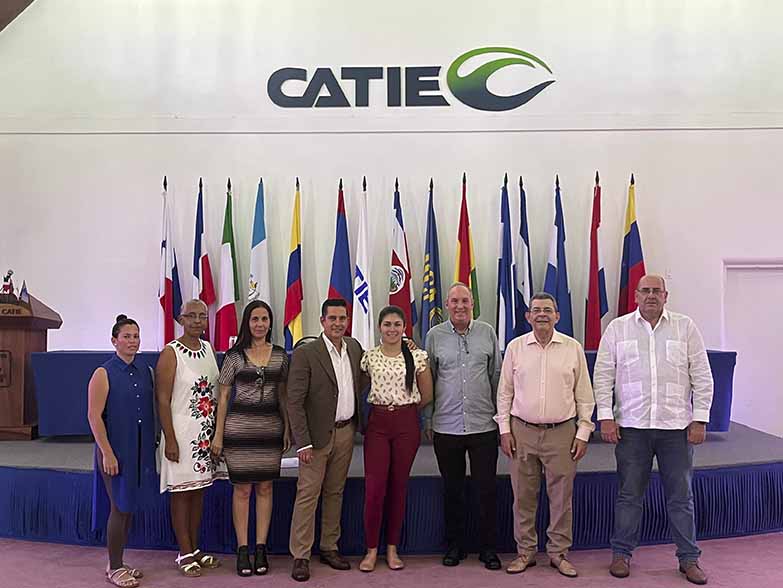
Written by:
Karla Salazar Leiva
Communicator
Information Technology and Communication
CATIE
Tag:agroforestería, Cuba, Suecia

